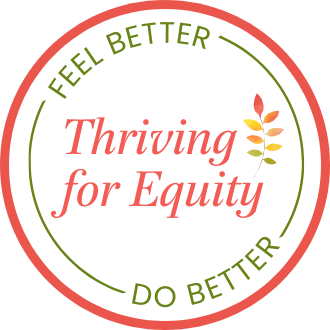You May or May Not Have Heard of the Dakota 38…
When I was about 15, a White, military kid (and a girl) living in Georgia, I came across the poem “Theme for English B” by Langston Hughes. I don’t remember how, but somehow that poem spoke to me. Perhaps it was because I had recently, for the first time in my life, I entered a school and a classroom in which I was the racial minority.
And I noticed how uncomfortable I felt.
And I was aware that it was a problem that I felt uncomfortable. White people often say we “don’t see race” but it becomes quite evident that we do when we are in the minority.
And I was aware that it was a problem that there was a school that was full of mostly of Black kids and that the quality of education at that school was radically below par compared to the predominantly White high school I’d left in a suburb of Chicago.
That moment and that poem didn’t immediately change my life.
I didn’t suddenly become an activist for racial justice (though I’m getting there.) I didn’t even decide at that point that I would become a teacher (though I am one.) But the poem — as it asked questions about what it meant for a young Black man to be in a classroom with a White teacher, as it asked much bigger questions about the unjust contrasts between their two lives— somehow in infused my life and my spirit in a way that seems to have shaped it. Or perhaps that poem just revealed something about what my work in the world was meant to be before I knew it.
Poetry has re-entered my life lately and my impression is that it’s not just me – there’s a bit of a trend. Or maybe I just wasn’t looking. After all, a lot of the poets I’m reading now have won things like the Pulitzer Prize, so some people have been paying attention to them!
There is something about poetry that speaks to the beauty and suffering, the joys and sorrows of life, something about how it speaks a soul-language, that other forms of writing don’t quite do in the same way. A poem requires you to sit with it. To ponder, even to memorize it. It often reveals its meaning only in layers, over time.
Poems often point out the obvious that isn’t obvious until the poet expresses it and as a reader you say to yourself “Yes! That’s exactly it!” Or help us to see what’s amazing, or humorous, or intriguing about life that we’re not noticing. “Alertness is the hidden discipline of familiarity” says poet David Whyte in one of my recent favorite poems “Everything is Waiting For You” which I wrote about here.
Or check out Pulitzer Prize winner Sharon Olds book Odes which includes “Ode to the Penis” and “Ode to the Hymen” along with a “Hip Replacement Ode” and many others just as surprising.
Or read Layli Long Soldier’s “38” and struggle with the suffering of our shared history, instead of looking away.
“You may or may not have heard of the Dakota 38.
If this is the first time you’ve heard of it you might wonder, “What is the Dakota 38?”
The Dakota 38 refers to thirty-eight Dakota men who were executed by hanging under the orders of President Abraham Lincoln.”
The filling of our souls with the beauty and laughter of the every day.
The not turning away from the pain, suffering and injustice.
This is what we need to do to bring healing to ourselves and the world.
And somehow poetry can help.
Recently I saw an article that suggested journaling with a poem. So, I thought this week I’d offer that to you as a new way to explore what life means and how to do it. How to carry both its beauty and its pain. Perhaps as a way to connect with Spirit/the Divine/Love.
Try it with this poem by Wendell Barry (or find another one.)
“When despair for the world grows in me
and I wake in the night at the least sound
in fear of what my life and my children’s lives may be,
I go and lie down where the wood drake
rests in his beauty on the water, and the great heron feeds.
I come into the peace of wild things
who do not tax their lives with forethought
of grief. I come into the presence of still water.
And I feel above me the day-blind stars
waiting with their light. For a time
I rest in the grace of the world, and am free.”
Instructions:
Read the poem over a few times silently. Read it out loud. Then journal for 10 minutes without letting your pen stop, just write starting with the prompt, “When I read this poem I…”
If you want to, you could also think of an action you want to take based on what you just wrote.
I’d be so curious to hear about it if you try it. Hit reply and I’ll get your message.
Here’s to thriving – and equity.
Deb
P.S. Except for Langston Hughes all of the poems and poets I wrote about here I “discovered” through the On Being podcast /website (which I’ve mentioned here at least 1000 times because it is where I discover many things!) You can find the poems and hear the poets reading them, and/or talking about them there.
P.P.S. I’m starting (slowly) to get more active on Instagram. Would love for you to join me there!
